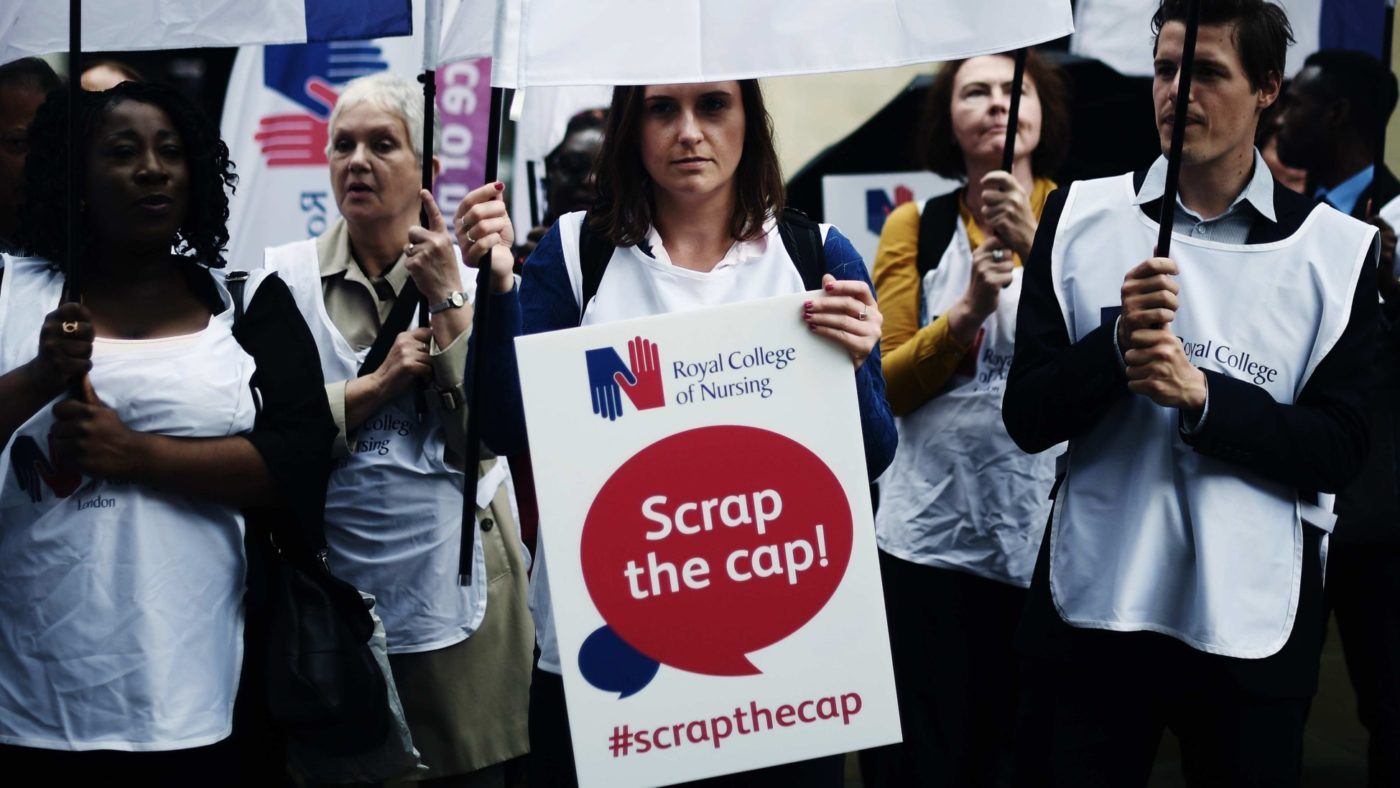Facts are terribly inconvenient: as those screaming about lifting the public sector pay cap are about to find out. The basic complaint is that pay for all those dedicated servants has fallen in recent years and it should be rising. In real terms it’s entirely true that their pay has fallen as inflation has been higher than nominal rises.
But then that’s true for all of us. We’ve just had a massive recession and thus we are indeed worse off. That’s what a recession is all about. So the question should be: are we all sharing that pain? We are not. Public sector pay has fallen by less than private. The people paying the tax have suffered more than those who eat the tax – hardly a good argument in favour of tax-eater pay rises.
The Guardian, with its reader base among those who live at our expense, is all over the argument. Frances O’Grady of the TUC says her members should all get more. Janet Davies of the Royal College of Nursing says hers should. Well, that’s only unions doing their job.
But Katie Allen, the Guardian’s economics reporter, tells us that public sector pay is being squeezed more than private. And that’s the bit that isn’t really true, according to today’s report from the Office of Manpower Economics. This is the technical report which then feeds through to the various pay-setting bodies for those saints and angels in the public sector. That report states:
Averaging across all 353 occupations in the UK’s Standard Occupational Classification, there was a decline of 5.8 per cent in median real gross hourly occupational earnings between 2005 and 2015. The decline was steeper among non-PRB occupations than PRB occupations (6.1 per cent compared to 3.1 per cent).
So the taxeaters’ pay has fallen less than the taxpayers’. Facts really are such a bitch. Because these ones entirely undermine, fatally hole even, the argument that we must raise public pay in the name of fairness or comparability.
Even using the Angels of the NHS as the example also fails:
Relative to their nearest non-PRB comparators, earnings growth was higher for the PRB group in five cases and lower in five cases. However, differences were only statistically significant in three instances, with PRB Nurses and PRB Nursing Auxiliaries experiencing higher earnings growth than their non-PRB comparators, while PRB Radiographers experienced significantly lower growth than their non PRB comparator occupation.
It is also true, as the IFS points out, that public sector pay rose substantially in the 2000 to 2005 period. Pay rose more and then pay fell less. I simply can’t see an argument for a public sector pay rise or the lifting of that cap here.
This does though leave us with what advice we should give to those public sector pay bodies, the people who determine these wages. Perhaps we should just tell them to look for other work as we should abolish them and the entire system of national pay scales.
We do know that national pay for nurses kills people. National pay, by definition, cannot reflect local employment markets nor living standards. Having the one rate thus produces a shortage of nurses in high cost of living areas and that really does kill people. Our answer should thus be to get rid of the entire idea. Devolve pay down to the actual employer.
The hospital, the fire brigade, the local police force, should pay what it needs to in each area in order to attract the people and skills it requires. Just like every private business in the country does. This would almost certainly mean substantial pay rises in London and falls in less expensive living cost areas.
The joy of this is that we would also, at a stroke, solve the problem of essential workers not being able to afford to live in London; we could do away with the entire system of protected housing and or cheap rents for them.
The inarguable fact is that public sector pay – and even more so for nurses – is higher relative to private than it used to be. So let’s stop arguing about the public sector pay cap. We know that markets work so we should use them to solve this problem, after we’ve abolished national pay.


